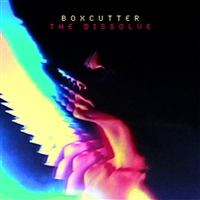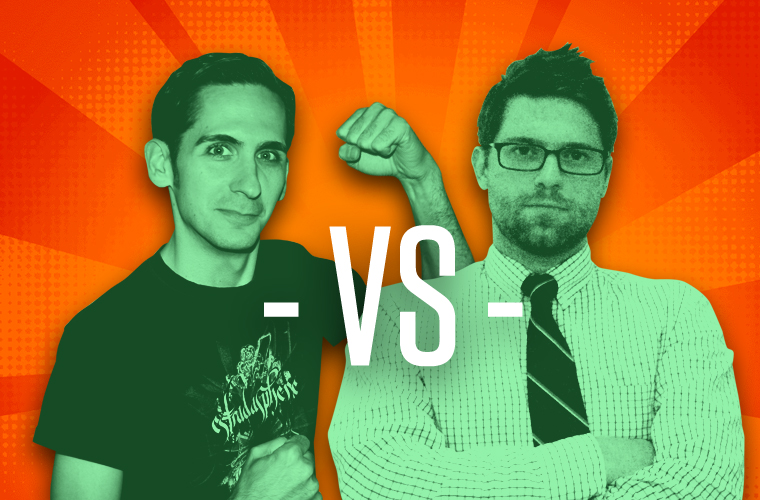Scott Morrow is ALARM’s music editor. Patrick Hajduch is a very important lawyer. Each week they debate the merits of a different album.
 Boxcutter: The Dissolve (Planet Mu, 4/25/11)
Boxcutter: The Dissolve (Planet Mu, 4/25/11)
Boxcutter: “TV Troubles”
[audio:https://alarm-magazine.com/wp-content/uploads/2011/04/Boxcutter_TV_Troubles.mp3|titles=Boxcutter: “TV Troubles”]Morrow: The Dissolve is the fourth full-length album by Boxcutter, a dubstep/IDM musician from Northern Ireland and a regular of the Planet Mu roster. Also known as Barry Lynn, he often takes a dance-influenced approach to his music, enabling an entry point for those who can’t handle thornier artists like Aphex Twin.
On The Dissolve, some of the dark dance elements remain, but by and large, this is a shift in a much funkier direction, with retro electronic sounds providing a much lighter and old-school feel.
Hajduch: I’ve been a fan of Boxcutter for a long time. It’s always seemed like his music was only “dubstep” in name only; he traded mainly in really brutal jungle / drum ‘n’ bass, which was no stranger to the super-heavy bass line.
He also accented his music with flourishes of horns and keys, with a jazz-fusion nod reminiscent of Squarepusher. That’s all been changing, and The Dissolve gets him much closer to mid-’70s Herbie Hancock in sound, with artwork that owes a lot to current indie/experimental’s fetish for a look approximating cheap VHS video.
Morrow: If you go back to his first full album, Oneiric, after listening to The Dissolve, it sounds like another artist — with deep, wobbling bass lines, foreboding samples, and increased atmospherics. But if you go through the timeline, the metamorphosis is much more fluid. I prefer some of the darker material and the more exotic samples, but it’s been a relatively smooth transition to an album of get-down sounds.
And though some of the bubblier sounds aren’t my cup of tea, I like that there’s a lot going on, often with some exotic flavors in the mix. There are elements that could double as digitized flutes or harpsichords, but there also are fluttering video-game sounds and outer-space effects over bouncing bass lines.
Hajduch: The transition has been a gradual one — basically from a light jazz-inflected sound to a more minor-key approach, closer to a more traditional notion of “dubstep.” And the back end of The Dissolve feels a lot more familiar for listeners of his previous album, Arecibo Message. It’s primarily a busy, dark take on two-step. It’s not particularly adventurous, but the way that Lynn builds the tracks up, it’s compelling listening nonetheless.
And given how flat some of the vocal funk excursions fall (neither of the Brian Greene vocal tracks are bad, per se; they’re well executed but seem longer than they actually are), it’s comforting to hear the shuffle of “Moon Pupils” or the skittering footwork toms (and sort of insane cymbal programming!) of “Allele.” These sparse, percussive, dubby workouts are much closer to Lynn’s wheelhouse than tepid vocal funk, no matter how lush it sounds.
Morrow: I’m not too keen on the vocal funk either, but I think that The Dissolve finds a nice balance, and there are even a few reverberated guitar lines to pair with the synthesizers and samples. Boxcutter has done another nice job of keeping things interesting.

